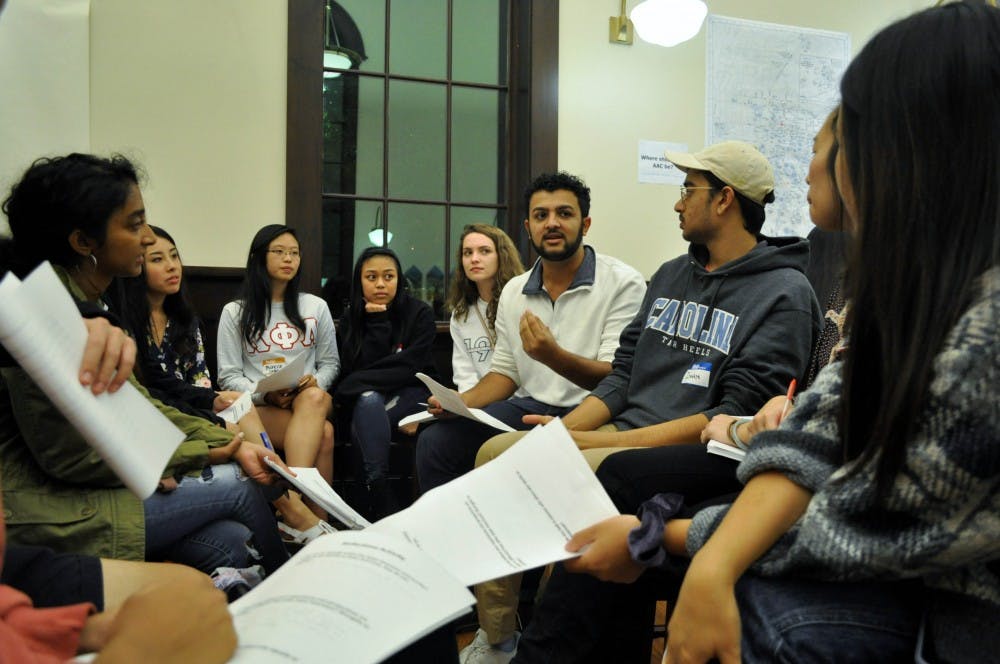CORRECTION (10/28/2019): A previous version of this article named an incorrect host for the open forum. It was hosted by the Asian American Center Student Advisory Board. The article also misstated Eugene Lao's relationship to the campaign committee. The article said Lao gave a $100,000 gift to the Asian American Student Association, but he never donated it directly to the association. Finally, the article had an incorrect launch date for the campaign.
Last Thursday, the Asian American Center Student Advisory Board held an open forum in the Campus Y for UNC community members to learn more about the future of the Asian American Center expected to open in Fall 2020 — despite student leaders advocating for its creation since 1994.
“Asian American students are the only minority yet to have their own center on campus,” senior June Yom, president of the Asian American Student Association, said.
After its announced opening earlier this semester, Yom said there was confusion among students about what exactly the Asian American Center would be, what function it would serve and who it would serve.
Yom said she hoped the open forum would answer these types of questions.
During the forum, campaign members behind the center presented the center’s purposes which include promoting the public understanding of Asian American cultures, supporting the Asian American student population and providing resources and opportunities for them.
Including Yom, the campaign team is made up of 11 students and two alumni.
Eugene Lao, an alumnus who graduated in 1991, intended to give AASA a gift of $100,000 to ensure the sustainability of the organization. But, Yom and other student leaders thought the money could go toward the creation of a center to advance the needs of Asian American students on campus.
They approached Lao, who cofounded the original version of AASA, with the idea and gained support from other leaders on campus, such as Barb Lee, a founding member of the UNC Alumni Committee on Racial and Ethnic Diversity who graduated from UNC in 1988.



